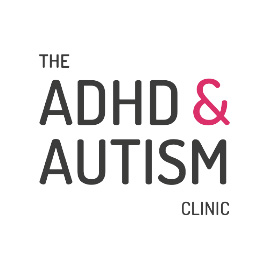A guide to understanding autism in older adults and accessing assessments through the ADHD and Autism Clinic.
Autism spectrum disorder (ASD) has historically been associated primarily with children and younger adults, often leaving older adults overlooked and undiagnosed. However, awareness is now growing around autism in older adults, highlighting a critical need for greater understanding and targeted support. The ADHD and Autism Clinic is a vital resource, providing specialised autism assessments specifically tailored to the unique needs of adults over 60.
Why Autism Often Goes Unnoticed in Older Adults
Decades ago, autism was not widely recognised, especially among adults. Older adults today grew up during periods when autism was poorly understood or entirely overlooked. Without proper diagnostic tools or awareness, many older adults have lived their entire lives without knowing they are autistic. This lack of diagnosis often leads to misinterpretations of behaviours, relationship struggles, and even misdiagnosed mental health conditions such as anxiety or depression. Undiagnosed autism in older adults can significantly impact their overall quality of life, social relationships, and emotional well-being.
Signs of Autism in Adults Over 60
Autism in older adults can present subtly and differently from younger individuals. Typical autism traits like sensory sensitivities, preference for routines, and challenges in social interactions are common but might be mistakenly attributed to eccentricities or personality quirks. Specific signs include:
– Difficulty maintaining eye contact and interpreting social cues.
– Strong adherence to routine and experiencing distress when routines are disrupted.
– Sensitivity to noises, bright lights, textures, or crowded environments.
– Preferring solitary activities or having highly focused interests and hobbies.
– Challenges adapting to change, particularly in social or living situations.
Understanding these signs can help older adults or their families identify potential undiagnosed autism, leading to greater clarity and support.
Benefits of an Autism Diagnosis for Older Adults
Receiving an autism diagnosis later in life is incredibly meaningful, providing older adults with valuable self-awareness and validation of their life experiences. This newfound understanding often leads to improved mental health, reduced anxiety, and increased self-esteem. With a formal diagnosis, older adults can access targeted support, tailored services, and connect with supportive communities. While some individuals may initially feel apprehensive about the stigma surrounding autism, the benefits of diagnosis and subsequent support typically far outweigh these concerns.
For instance, Scottish comedian Fern Brady received her autism diagnosis in 2021 and has since become an advocate for autism education and awareness. Her diagnosis allowed her to reflect on and better understand her life experiences, greatly improving her overall well-being. Similarly, musician Grimes publicly revealed her recent autism diagnosis, noting how earlier recognition could have eased her life’s challenges, underscoring the value of pursuing a diagnosis even later in life.
How to Get an Autism Assessment Over 60
Autism assessments for older adults involve specialised approaches to account for the unique life experiences and needs of older adults. The ADHD and Autism Clinic offers targeted assessments specifically designed for this demographic, ensuring comfort, understanding, and effective communication throughout the evaluation process.
To schedule an assessment:
1. Visit the ADHD and Autism Clinic’s Private Autism Assessments page
2. Complete the initial contact form.
3. Attend a preliminary consultation to discuss your needs.
4. Undergo the comprehensive assessment, typically involving detailed discussions about personal history, observed behaviours, and standardised assessments.
Strategies and Resources for Managing Autism in Older Adults
Practical strategies and community resources can greatly enhance the lives of older adults with autism. Useful approaches include:
– Creating structured daily routines that provide predictability and reduce anxiety.
– Utilising sensory-friendly modifications in living spaces, such as dimmable lighting, noise-cancelling headphones, and comfortable clothing.
– Connecting with local and online autism support groups specifically catering to older adults.
Valuable external resources, such as the BBC’s autism insights article, provide further guidance and awareness on managing autism effectively in later life.
Frequently Asked Questions about Autism in Older Adults
What is different about autism in older adults?
Older adults often have adapted or masked autism traits over their lifetimes, making symptoms subtler and diagnosis more challenging.
How does the assessment process work for older adults?
Assessments involve comprehensive discussions about an individual’s history, interviews with close family members, and standardised autism assessment tools tailored to the older population.
Are there specific resources for neurodivergent older adults?
Yes, numerous organisations and online communities cater specifically to older neurodivergent adults, providing valuable advice, companionship, and practical resources.
Conclusion
Understanding autism in over-60s is crucial to enhancing quality of life, mental health, and social connectivity for older adults. Recognising signs and pursuing an autism assessment through resources like the ADHD and Autism Clinic can profoundly benefit older adults and their families.
For more information and to access detailed support options, visit the ADHD and Autism Clinic’s Autism Information page.
To arrange a specialised autism assessment for older adults, visit the ADHD and Autism Clinic’s Private Autism Assessments page for more details.
For further insights into autism’s impact and support options for older adults, read this comprehensive article from BBC News on Autism in Older Adults.
